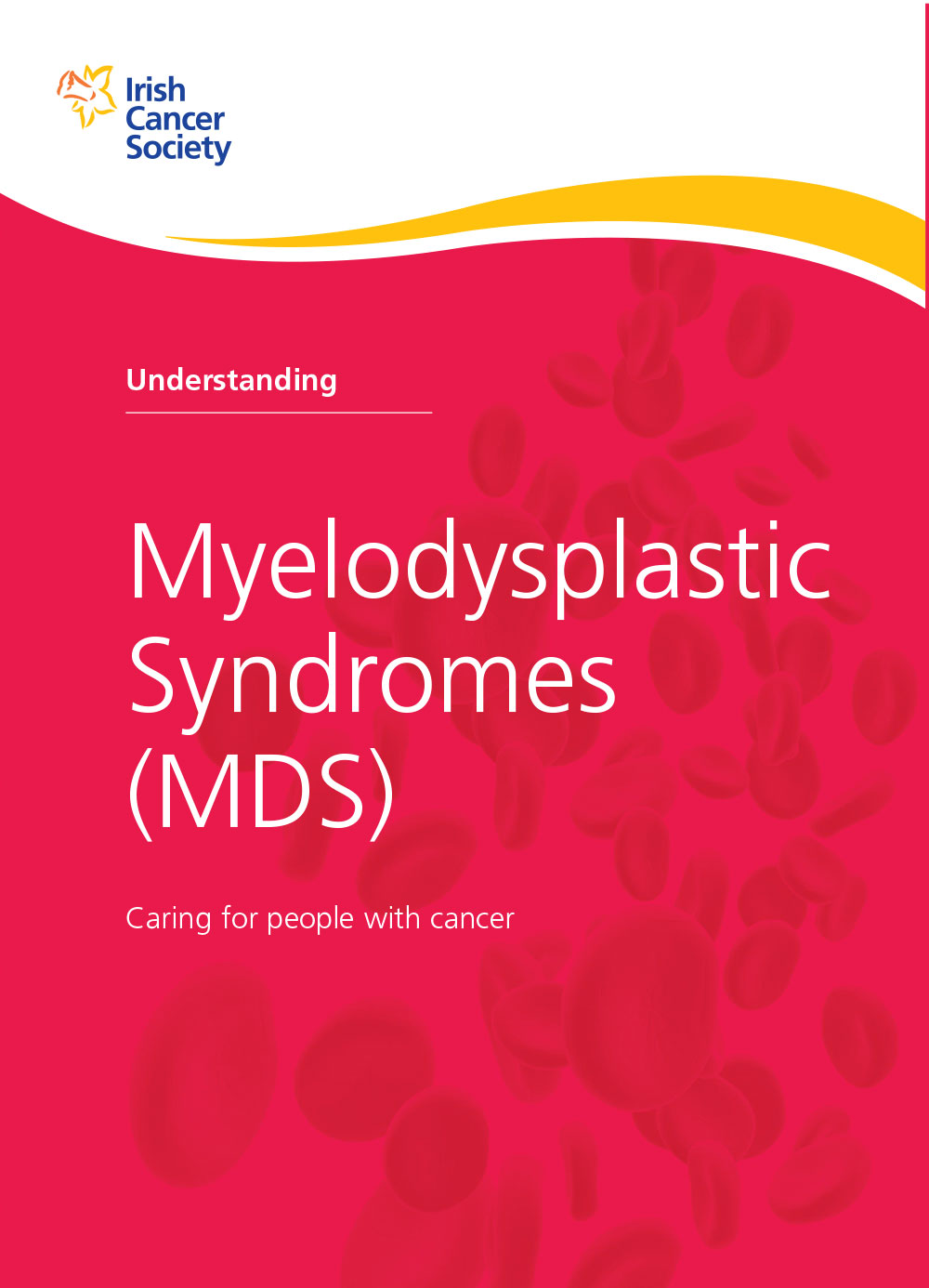Myelodysplastic syndromes (MDS)
In Ireland, around 180* people are diagnosed with MDS each year. It can be diagnosed at any age but is more common as people get older.
Signs and symptoms
Learn about the signs and symptoms of MDS. You are more likely to survive cancer if you find it at an earlier stage.
Treatments
There are a number of different treatments available for MDS. Your medical team will explain the best treatment options for you.
What are myelodysplastic syndromes (MDS)?
Myelodysplastic syndromes (MDS) are a group of diseases that affect the bone marrow's ability to make healthy blood cells. It is a type of cancer and sometimes may be referred to as bone marrow failure. All blood cells in a healthy person are made in the bone marrow.
With MDS, your bone marrow makes a large amount of faulty cells and many die before they reach your bloodstream. These faulty or abnormal blood cells are called ‘dysplastic’. As a result, you do not have the correct number of healthy blood cells in your bloodstream.
What are the types of MDS?
Each type of MDS describes how it affects the blood cells and bone marrow and if there are any abnormal changes to the chromosomes. For example, in some types of MDS blood will have a high number of blast cells – these are white blood cells that haven’t developed properly. In other types, blood cells or chromosomes may be abnormal in some way.
Doctors use this information to describe the type of MDS. This is called the subtype.
Read more about MDS subtypes.
Medical content updated from our 'Understanding myelodysplastic syndrome (MDS)' booklet (2022), reviewed by Dr Vitaliy Mykytiv, Consultant Haematologist, Maureen Whyte, Haematology Clinical Nurse Specialist and Noreen Twohill, Daffodil Centre Nurse.
Talk to a Cancer Nurse

Support Line
Our Daffodil Centres

*The Irish Cancer Society uses the most up-to-date cancer statistics from the National Cancer Registry Ireland, available on www.ncri.ie

